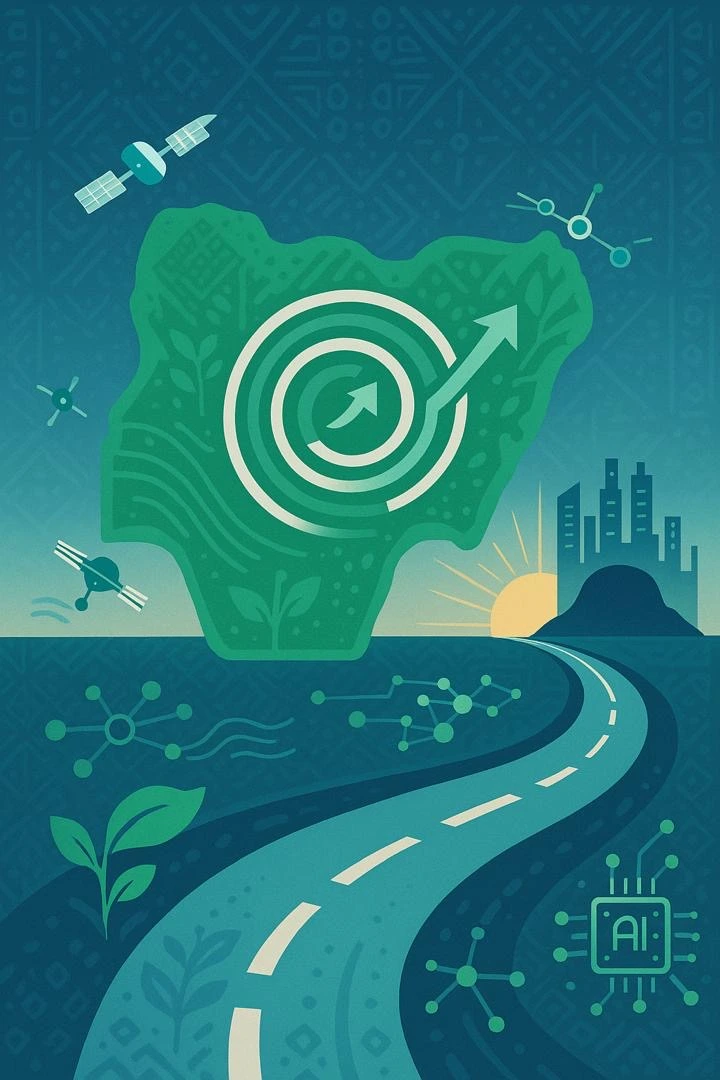As a specialist in digital government transformation, I have meticulously analyzed Nigeria’s progression towards a digitally empowered society—a journey distinctly articulated in the thorough consultancy research report “Exploring Institutional Factors Enabling the Nigerian Digital Economy Policy and Strategy.”
The findings present a pragmatic yet hopeful perspective on the current maturity of Nigeria’s digital ecosystem, providing both an evaluation of the existing institutional frameworks and a roadmap for future policy alignment and strategic development.
Assessing Maturity and Institutional Readiness
The current digital ecosystem in Nigeria exhibits a combination of nascent initiatives and strong strategic intent. The research report highlights that although essential institutions such as the National Information Technology Development Agency (NITDA) and the Ministry of
Communications and Digital Economy have established foundational policies, considerable gaps persist in fully operationalizing these frameworks. This disjointed maturity is apparent in the inconsistent implementation of digital initiatives across federal, state, and local levels, exposing an institutional deficit that obstructs reliable service delivery and broader digital inclusion.
Recent policies, including the National Digital Economy Policy and Strategy (NDEPS), signify a strategic transition towards using digital instruments to foster socio-economic advancement.
However, the report elucidates that effective digital transformation necessitates more than mere policy documentation; it requires integrated governance, a collective vision among stakeholders, and a resilient regulatory framework. In juxtaposition to global best practices and regional counterparts, Nigeria’s digital ecosystem remains in its “breakout” phase. Although it exhibits considerable potential in technology-driven domains such as fintech and e-governance, pervasive infrastructure and operational challenges continue.
Aligning with Recent Developments
Recent developments in Nigeria’s digital economy underscore the pressing need to address
institutional gaps. The COVID-19 pandemic has expedited the adoption of digital technologies,
resulting in substantial transformations in the provision of government services and business
operations. However, this response has also illuminated persistent deficiencies in digital
infrastructure, particularly in broadband access and power reliability, which must be rectified to enable sustainable growth.
Significantly, collaborative initiatives between the public and private sectors have acquired
substantial momentum. For instance, technological hubs in Lagos and Abuja have led to
considerable innovation, attracting domestic investment and international venture capital. Policy reforms, including revised data protection laws and targeted investments in digital literacy, further enhance these accomplishments. However, these advancements must be integrated into a coherent national strategy that harmonizes efforts across various agencies, thereby ensuring that digital transformation benefits all citizens, rather than predominantly those residing in urban areas.
A Roadmap for Future Transformation
The research report and recent policy shifts indicate several critical areas for enhancing Nigeria’s digital ecosystem maturity:
- Integrated Governance and Institutional Collaboration: To address the prevailing fragmentation, Nigeria must enhance inter-agency coordination. The establishment of a national digital transformation council, which includes representatives from the government, private sector, non governmental organizations, and academia, can ensure the alignment of strategic objectives, mitigate bureaucratic silos, and promote shared accountability.
- Robust Infrastructure and Access Expansion: Investment in broadband and power infrastructure is essential. The government should enhance public-private partnerships to extend connectivity, particularly in underserved rural areas, and consider innovative solutions such as community networks and renewable energy-powered data centers.
- Capacity Building and Digital Literacy: Modernizing institutions is intrinsically linked to the empowerment of citizens. A thorough digital skills agenda, seamlessly integrated into educational and vocational training frameworks, will equip citizens to engage with and reap the benefits of digital services effectively. In doing so, it has the potential to stimulate entrepreneurial growth and foster inclusive economic participation.
- Regulatory Reforms and Policy Consistency:A stable and transparent regulatory framework is essential for fostering investor confidence and promoting sustainable growth. Enhancing legislation concerning data protection, cybersecurity, and digital transactions, coupled with the assurance that policies remain adaptable to technological advancements, will position Nigeria on a
robust trajectory towards long-term digital maturity.
Final Reflections
Nigeria’s digital ecosystem presents numerous opportunities; however, institutional deficiencies and infrastructure challenges impede its potential. The “Exploring Institutional Factors Enabling the Nigerian Digital Economy Policy and Strategy” report offers a framework to address these challenges. It underscores the importance of policy development, collaboration, and capacity building. By harmonizing policies with a defined roadmap for reform, Nigeria can expedite its digital transformation and cultivate an inclusive digital economy for all citizens. Furthermore, Nigeria must remain attuned to global digital trends and enhance its innovative trajectory.











